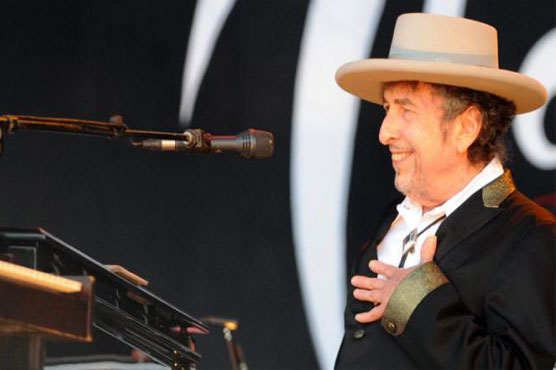Bob Dylan, 'wise' at 73, gives album free to seniors

Dylan's 36th studio album, "Shadows in the Night," interprets songs by Frank Sinatra.
NEW YORK (AFP) - Bob Dylan is giving away his latest album for free to select seniors as the 73-year-old rock legend says he is at peace with getting older.
Dylan s 36th studio album, "Shadows in the Night," which interprets songs by Frank Sinatra, will be mailed at random to 50,000 readers of AARP s magazine, which is sent to some 35 million Americans age 50 or older.
Speaking to the magazine in a rare interview, Dylan expected that members of the AARP -- which originally stood for the American Association of Retired Persons -- would enjoy the album and said he has learned that "passion is a young man s game."
"Older people gotta be more wise. I mean, you re around awhile, you leave certain things to the young. Don t try to act like you re young. You could really hurt yourself," said Dylan, who nonetheless maintains a rigorous touring schedule.
Dylan s move on "Shadows in the Night," which goes on sale on February 3, comes after U2 last year gave its album for free to the half billion users of iTunes.
Apple had hoped that the surprise gift would promote its latest iPhone, but instead received many complaints by users who did not want to hear from the Irish superstars.
Dylan, who was a major figure in the 1960s counterculture but has not directly affiliated himself with political movements, also called in the AARP interview for wealthy Americans to do more to create jobs.
"The government s not going to create jobs. It doesn t have to. People have to create jobs, and these big billionaires are the ones who can do it," he said.
"We see crime and inner cities exploding with people who have nothing to do, turning to drink and drugs. They could all have work created for them by all these hotshot billionaires," said Dylan, who stressed: "I m not talking about communism."
Dylan s commentary came even though he complained in the interview that people ask him too often about topics other than music.
"People have been doing that to me since the 60s -- they ask questions like they would ask a medical doctor or a psychiatrist or a professor or a politician. Why? Why are you asking me these things?"

